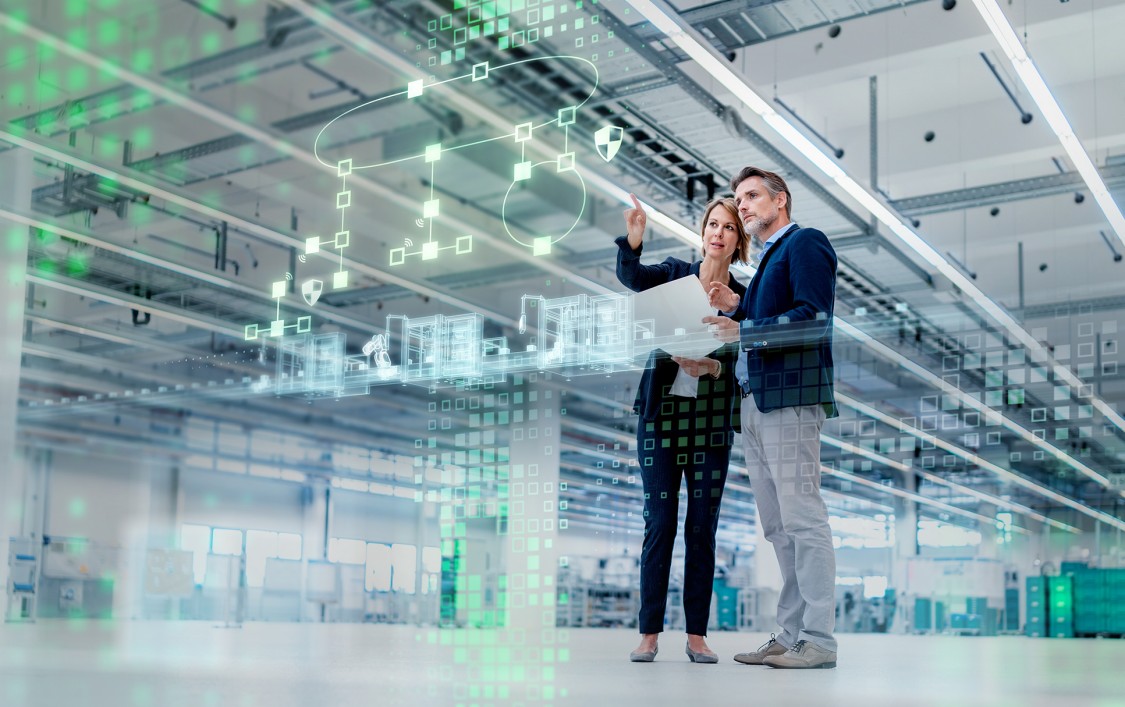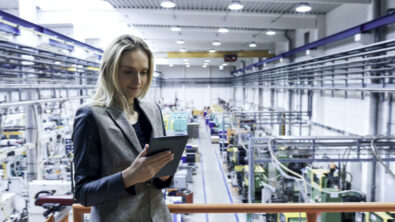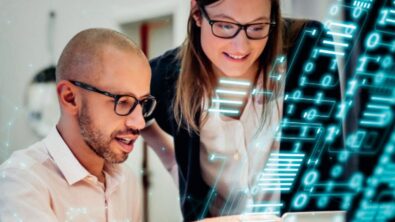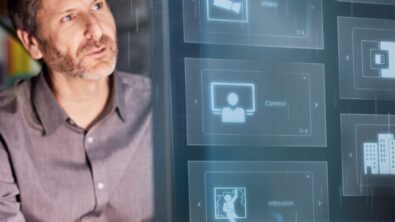New business models and hyperautomation – IoT miniseries ep.1

To showcase the different ways to optimize your industrial environment, this miniseries – Future-proof with the IoT – will be taking over the regularly running series The Digital Transformation: Solution for Industrial Machinery for the next month. Listen to episode one of Future-proof with the IoT on the Siemens Podcast page or on all of your favorite platforms, but if you are not sure if it is for you check out the brief episode coverage before you sit back with a coffee to listen.
Manufacturing faces many challenges during normal operations, let alone during global economic downturns. Supply chain disruption over the past year have put many of the challenges manufacturers face every day into perspective. Assuming constantly consistent operations is no longer feasible for running a manufacturing business at a global scale. To help businesses prevent the losses they saw in the future and prepare for the unexpected, we have brought together a great group of experts to speak to the constant challenges of manufacturing in a global supply chain as well as offer insight, both first-hand and from customers, on how to approach the digital transformation.
Over the course of this miniseries our experts will discuss the general challenges in industry as well as how digitalization and the Internet of Things (IoT) can mitigate them even in unexpected events. But in this first episode, we will meet the host Jörg Ludwig and our guests Heiko Dickas and Sebastian Oeder from the Bad Neustadt electric motor factory as well as Colm Gavin and Matthias Lutz from Siemens Digital Industries Software.
To kick off the discussion of challenges and solutions for industrial machinery, our experts cover two important trends in the space:
- New business models – As end customers move towards buying outcomes of manufacturing, they increasingly want new purchasing options and machine builders need new revenue streams to make up for the changes. This could mean new dynamic warranties or maintenance as a service, all enabled by connected machines and analysis of the stream of IoT data from them
- Hyperautomation – More complex products require a more complex solution, hyperautomation connects traditionally separate process. The goal is to move away from the rigid structures of previous manufacturing automation. That could come in the form of AI vision systems for quality inspection or for pick-and-place robot arms
- Heiko and Sebastian also give a first-hand account of how these trends are impacting their factory – Siemens Bad Neustadt
As an example of why these changes to production are needed, look at the sorting machines for businesses offering 1-day and even same-day shipping. Running with that efficiency requires near 100 percent uptime and delivering that means offering insight into the machines themselves. That could mean offering predictive maintenance to ensure the machines don’t go down during a sorting operation or optimizing the internal mechanisms to limit strain on the machine to let it run longer between maintenance cycles. The end goals are numerous but implementing them requires a digital solution.
For the full story of the trends impacting industrial manufacturing and how IoT plus digitalization is solving the biggest challenges listen to the entire first episode and stay tuned in as the conversation expands into the trends of low-cost competition and a new generation workforce in episode two.
Siemens Digital Industries Software drives the transformation to enable a digital enterprise where engineering, manufacturing and electronics design meet tomorrow. Xcelerator, the comprehensive and integrated portfolio of software and services from Siemens Digital Industries Software, helps companies of all sizes create and leverage a comprehensive digital twin that provides organizations with new insights, opportunities and automation levels to drive innovation.
For more information on Siemens Digital Industries Software products and services, visit siemens.com/software or follow us on LinkedIn, Twitter, Facebook and Instagram.
Siemens Digital Industries Software – where today meets tomorrow
Jörg Ludwig – Since 2018, Jörg has been in the sales enablement team for MindSphere and since October 2020 also for Mendix, globally responsible for the creation of learning paths, enablement sessions, and value selling trainings and workshops. Prior to Siemens, Jörg ran his own business as a Value Selling trainer and coach for more than 7 years. He gained Sales experience and expertise from over 16 years in global Software Sales organizations.
Heiko Dickas – Heiko is the Team Leader of the digitalization team since the beginning of 2017 in the Bad Neustadt motor factory. His scope is being an enabler for the production unit in terms of digitalization. Heiko has been with Siemens for more than 30 years in different functions.
Colm Gavin – With over 20 years of experience in the Siemens Digital Factory, Colm works on business development for digitalization topics as they pertain to Siemens SW and Factory Automation, specifically virtual commissioning, Industrial IoT, Industrial Edge and AI topics.
Matthias Lutz – Matthias joined Siemens 14 years ago, starting in supply chain and procurement department. In 2015, he moved to the industrial customer service organization, focusing on industrial IoT and digital services.
Sebastian Oeder – Sebastian is Head of the production unit main motors in the Bad Neustadt motor factory. He has a background as a production manager at Siemens Energy and as a consultant at Siemens Corporate Technology.


